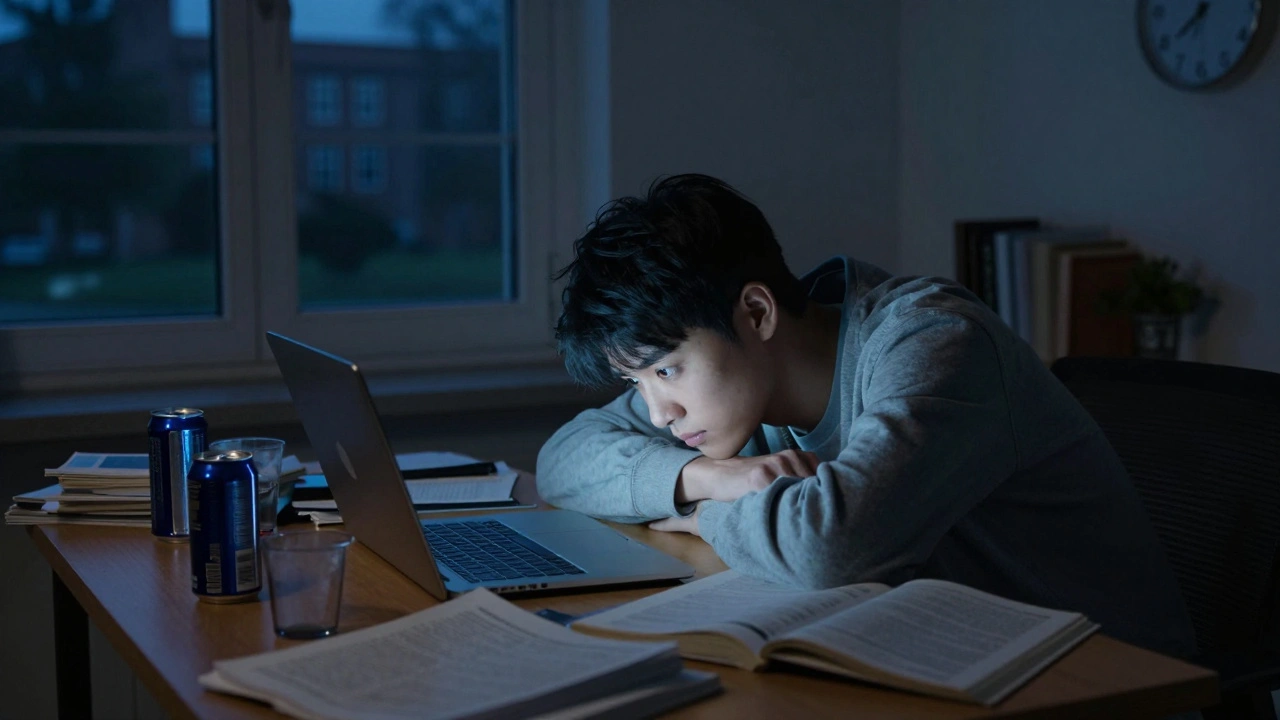Student Sleep Habits: How UK Students Really Sleep (And How to Fix It)
When it comes to student sleep habits, the patterns and routines students follow around bedtime, wake time, and sleep quality, often shaped by academic pressure, social life, and poor environment. Also known as sleep routines for students, these habits directly impact memory, mood, and exam results. Most UK students aren’t sleeping enough—47% get under 6 hours a night during term time, according to a 2023 University of Manchester student health survey. And it’s not just late nights studying. It’s scrolling, caffeine, inconsistent schedules, and dorm noise. Your brain isn’t a machine that can run on 4 hours and still produce top grades.
Sleep deprivation, a chronic lack of rest that impairs cognitive function, emotional control, and immune response is the silent killer of student success. It doesn’t just make you tired—it messes with your ability to focus during lectures, retain lecture notes, and even recall facts during exams. And it’s not just about quantity. sleep hygiene, the collection of daily behaviors and environmental factors that influence how well you sleep matters just as much. Sleeping at 3 a.m. and waking at noon isn’t a lifestyle—it’s a reset button for your circadian rhythm. That’s why students who sleep at the same time every day—even on weekends—perform better academically than those who binge-sleep on Sundays.
What’s surprising is how many students don’t realize their habits are the problem. They blame the workload, not the 11 p.m. energy drinks, the phone glow under the blanket, or the roommate who plays video games until 2 a.m. But the fix isn’t magic. It’s simple: dim the lights an hour before bed, ditch screens, keep your room cool, and stick to a schedule—even on Friday nights. You don’t need a sleep tracker or an app. You just need to treat sleep like a class you can’t skip.
And it’s not just about getting more hours. It’s about recovering. Students who nap for 20 minutes after lunch report better focus in afternoon seminars. Those who avoid caffeine after 3 p.m. fall asleep faster. Those who keep their beds for sleep only—not studying or scrolling—train their brains to associate the bed with rest. These aren’t theories. They’re habits used by students who went from barely passing to hitting first-class grades.
Below, you’ll find real advice from students who’ve been there: how to sleep in noisy halls, how to handle shift work and night shifts without wrecking your rhythm, how to deal with exam stress that keeps you awake, and how to spot when poor sleep is actually anxiety or depression. No fluff. No generic tips. Just what works—for students, in the UK, right now.
Published on Feb 2
0 Comments
UK students are burning out from lack of sleep. This article explains why rest isn't lazy-it's the key to better mental health, memory, and grades. Practical tips to sleep better without quitting everything.
Published on Nov 15
0 Comments
Sleep deprivation is silently hurting UK students' grades. Learn how lack of sleep affects memory, focus, and stress-and what practical steps you can take to sleep better and study smarter.

